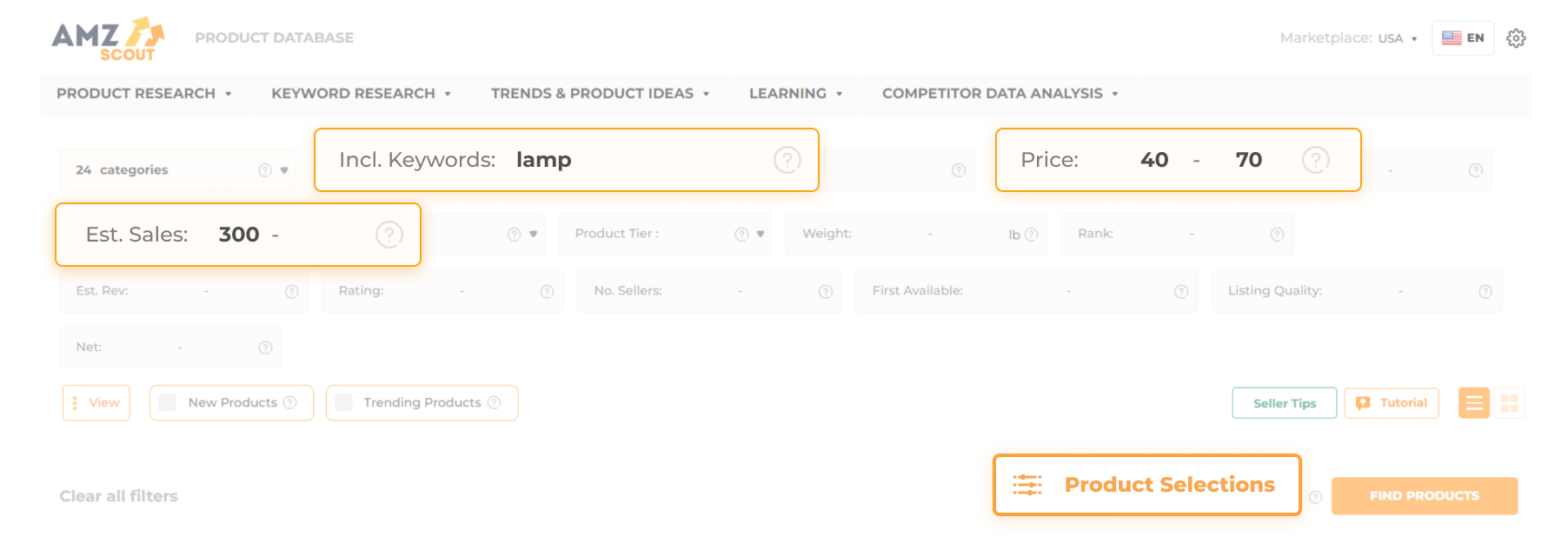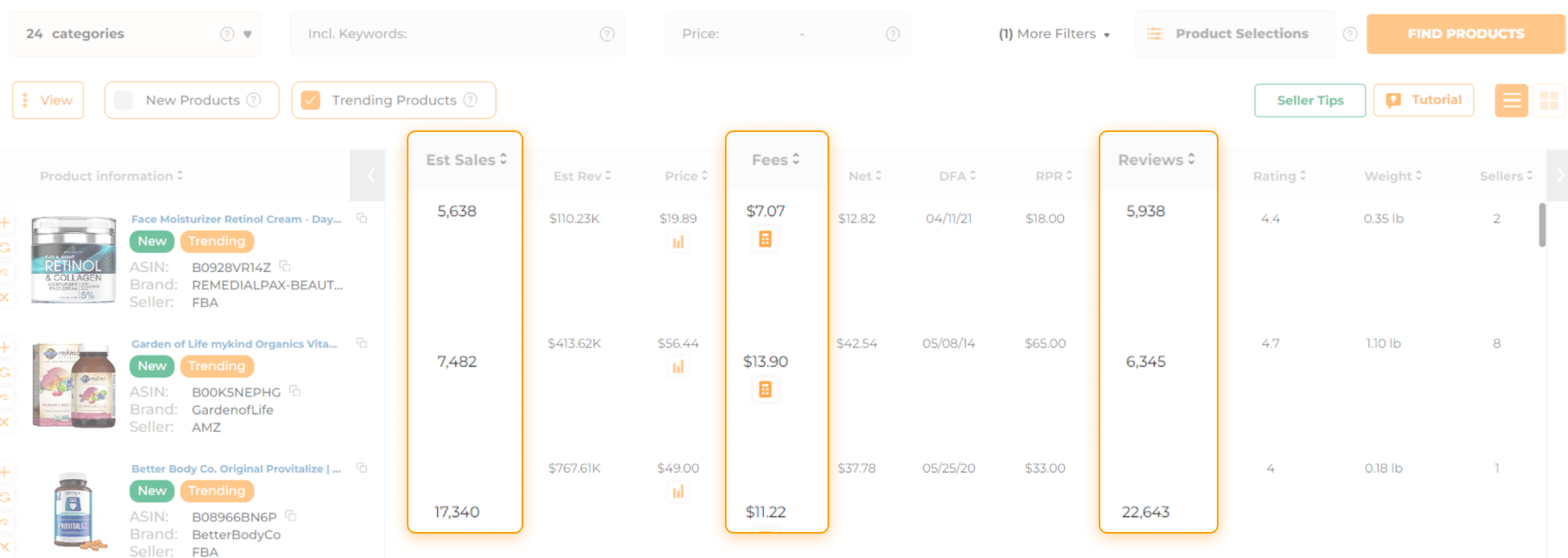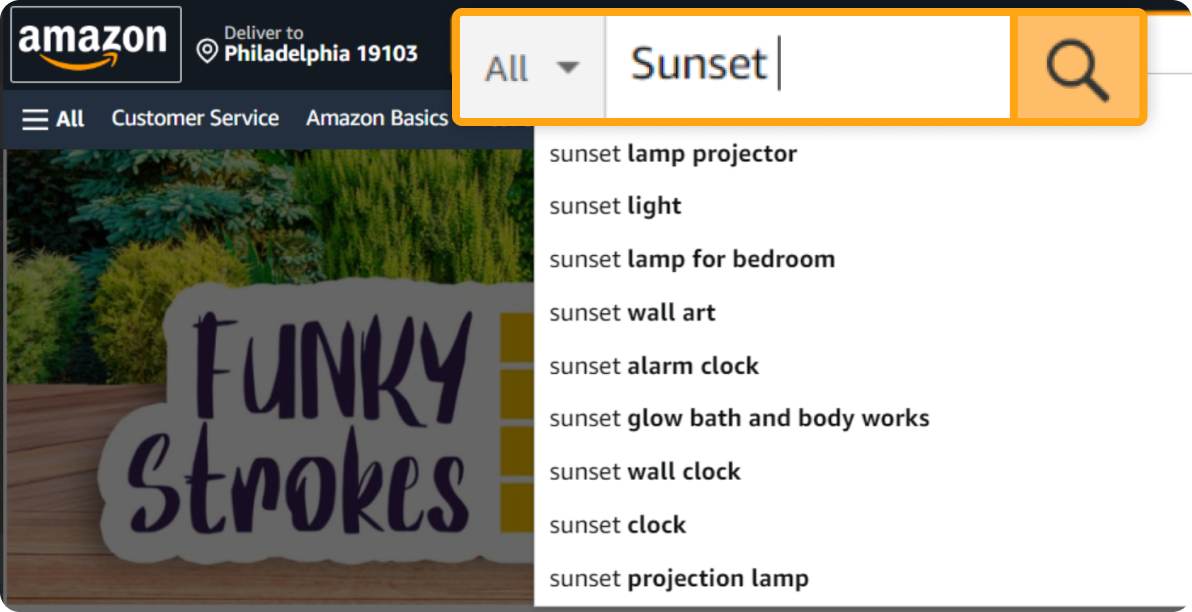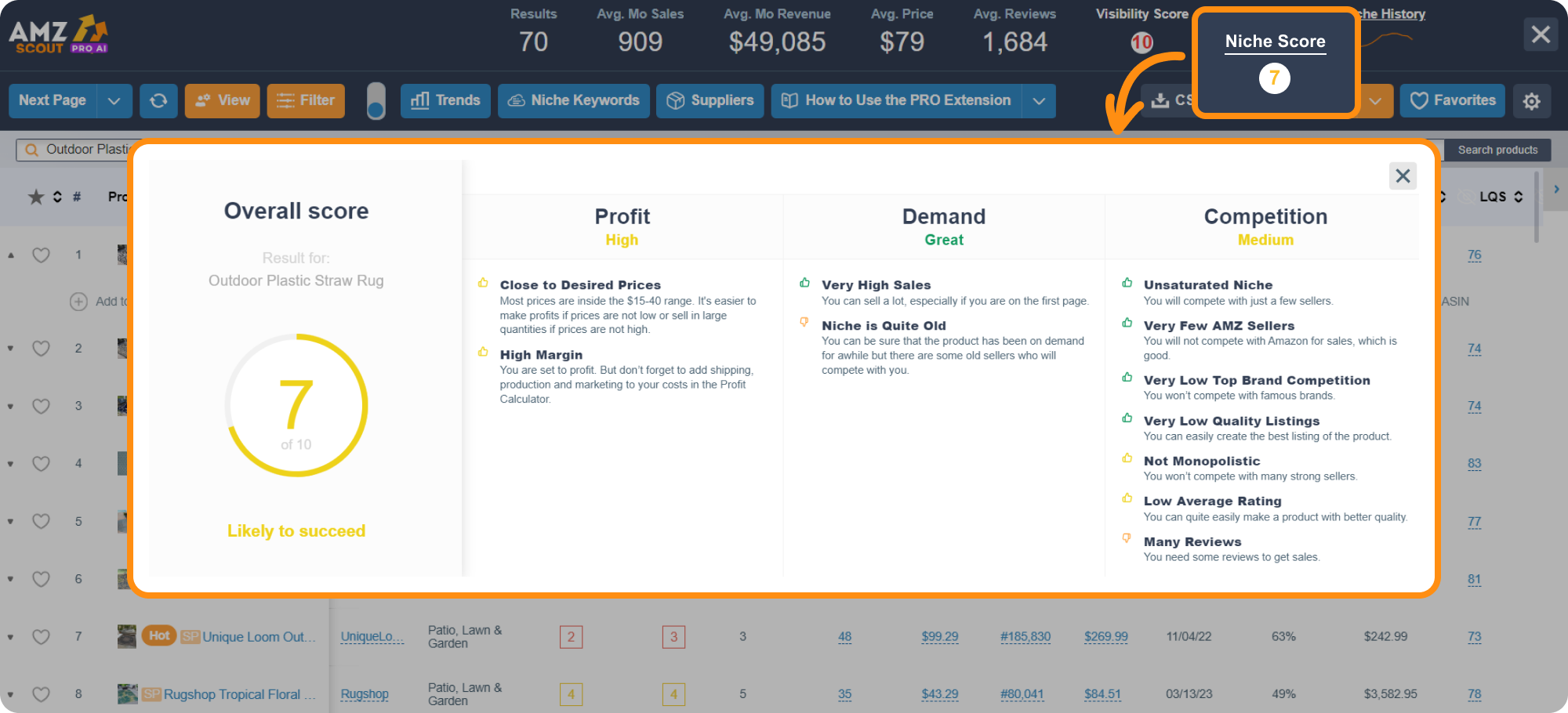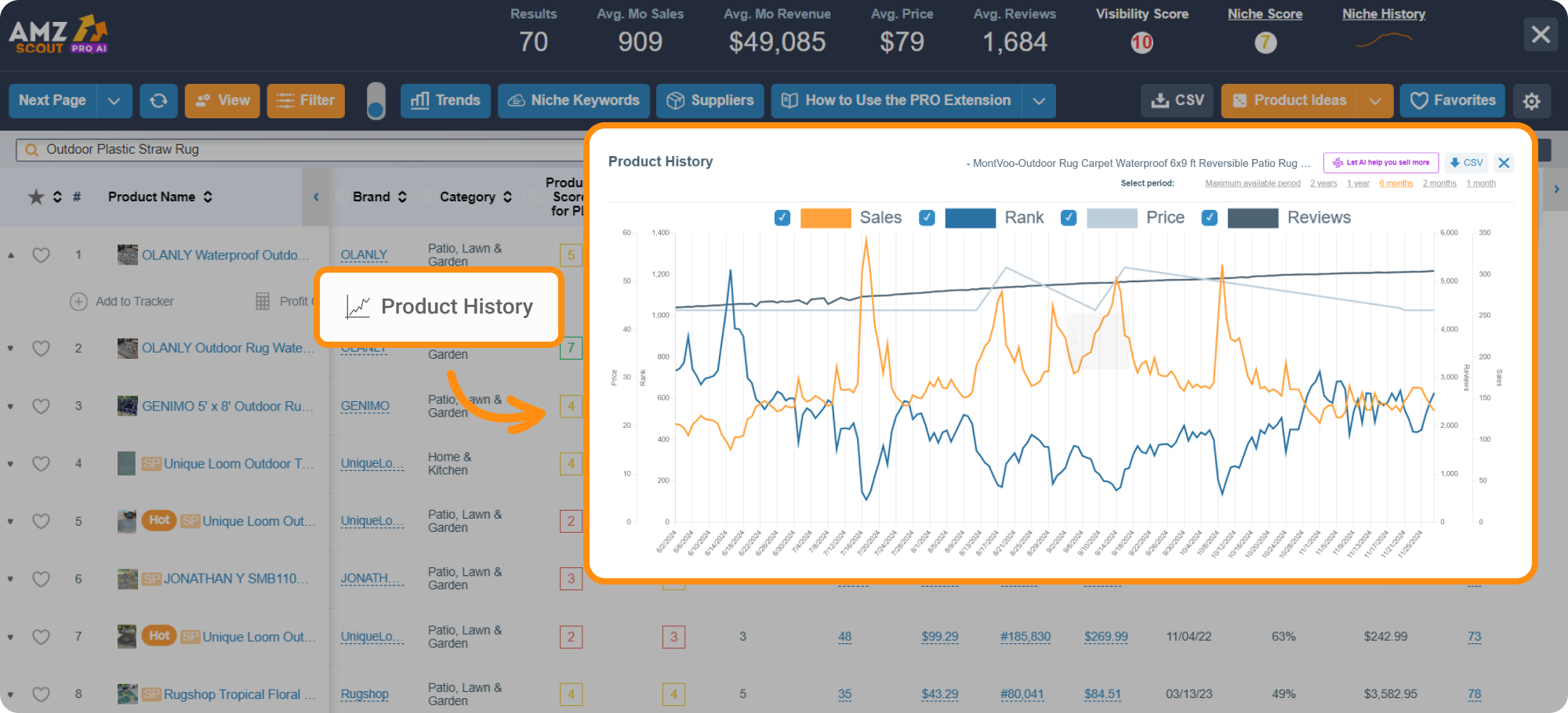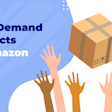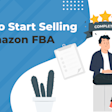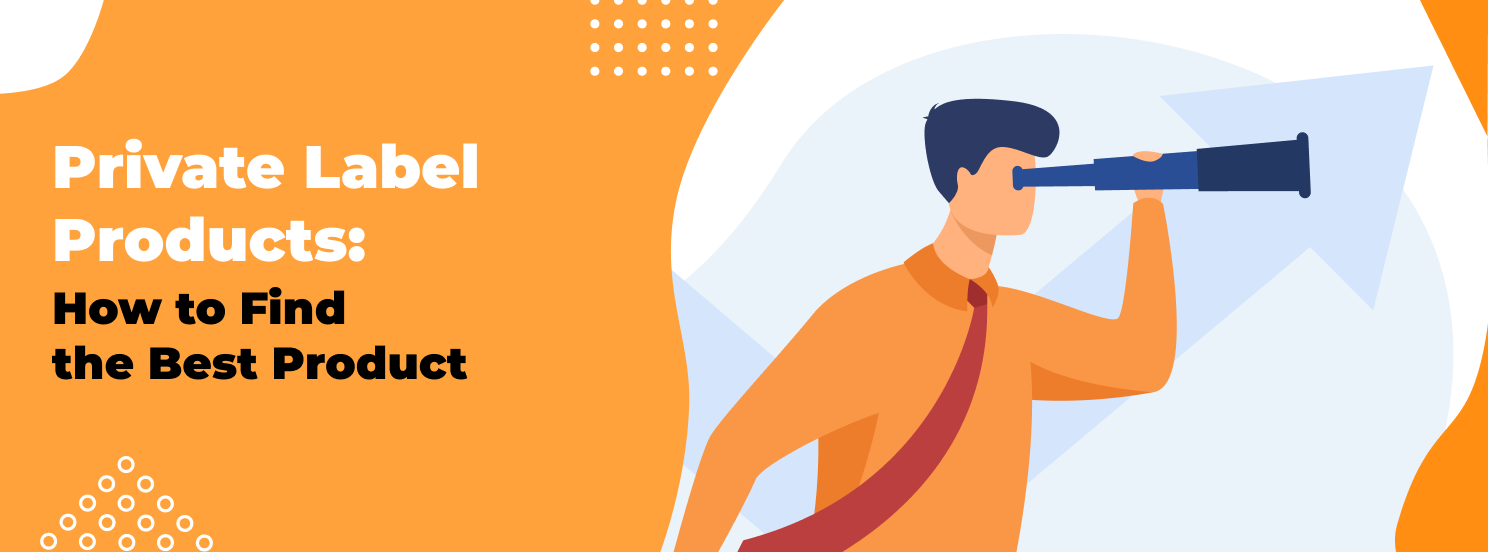
Best Private Label Products to Sell: How to Find Products for Your Brand
Starting a new business can be a daunting task, but many people don't realize that the first step doesn't necessarily have to be developing a new product. In fact, 20% of products on the market today are private label products, and this number is expected to increase over the coming years due to the continuous growth of eCommerce.
If you're looking to get into the business world, owning a private label is a great way to skip the product development process.
Table of contents
- What Are Private Label Products and How to Get Them
- How To Find Private Label Product Ideas
- Standing Out in the Market: What to Do Next with Your Ideas
- 10 of the Best Private label Products You Can Sell
- Pros and Cons of Creating Private Label Products
- Where Can I Create My Private Label Brand Line
- Tips for Starting a Small Business That Sells Private Label
What Are Private Label Products and How to Get Them?
Private label products are goods manufactured by one company but sold under another company's brand. This process is called private labeling and allows businesses to offer their own unique items to customers without having to go through the time and expense of creating their own products from scratch.
Private label selling involves finding a reliable manufacturing partner that can produce your desired product. The business then creates its own private label branding and packaging for the product and orders the product from the manufacturer with its own branding in place. Next, the manufacturer ships the product directly to the business, which can then distribute it to its customers.
How To Find Private Label Product Ideas
When searching for product ideas, consider your passion, target niche markets, and product preferences. While interest is important, focus on selecting products that have market potential.
There are five ways to discover winning products.
Using Analytical Tools
Look Through Marketplaces
Search Social Media for Trending Topics
Use Keyword Research to Find High Volume Topics
Research Report from Experts
It's vital to decide how you want to help people through your niche and select niches that work.
1. Using Analytical Tools
To gain a better understanding of the market, trends, and competition, you can utilize helpful product research tools. They allow sellers to identify demand, and analyze pricing and performance of their competitors. Whether you intend to sell on Amazon or elsewhere, you can use AMZScout’s set of tools to gain insights into profitable niches and their potential.
You can use the AMZScout Product Database to search through Amazon's entire inventory by applying different filters, such as category, seller type, rank, price, estimated sales, reviews, size, weight, and more.
1. Go to the Product Database tool and start a free AMZScout trial.
2. Use the search filters to narrow down the products you are looking for. For instance, you can filter the results to show products with sales greater than a certain amount (e.g., more than 300 per month).
3. Utilize the category filter to narrow your search and the Product Selections feature to save time.
4. Utilize Trending Products to focus on products whose sales have grown over the last one to three months, and New Products to focus on recently added products.
5. Click "Find Products" to generate results.
6. Create a list of products that have the greatest potential for success. Analyze key metrics such as sales, reviews, and other factors to help you decide which products are most likely to be successful.
After reviewing your requirements, you can generate a list of product ideas that meet your criteria. Then, you can go through the list and select the products that you are most interested in selling.
Extended Research
Once you have your product ideas from the Product Database or your own interests, conduct a thorough investigation using the AMZScout PRO AI Extension. It is incredibly helpful for evaluating the viability of each idea before deciding whether it is worth selling.
1. Download the AMZScout PRO AI extension to get started.
2. Search for niches or products you're interested in using the search bar on Amazon.
3. Click the AMZScout logo in the top right corner of your browser to open the Extension.
4. Review the dashboard of data for the products listed, which includes average sales, price, rank, and reviews. Additionally, take a look at other relevant details such as net margin.
5. To evaluate the quality of the niche, use the Niche Score tool. This score will provide an analysis of the level of demand and competition within the niche and provide a rating out of 10. To analyze individual products within the niche, click on the Product Score next to the products.
6. By analyzing the historical data of your niche and product, you can gain valuable insights to help inform your selling decisions. Both the Niche History and Product History provide data from previous months and years, allowing you to track sales, pricing, and rankings over time.
7. You can identify high-potential products more effectively by leveraging a combination of both current and historic data. Utilize metrics such as FBA fees and calculated profits to determine whether you have chosen a product with good potential.
To further aid your private label search, make use of the AMZScout Product Database and PRO AI Extension, so that you can easily find the right items for your business.
2. Look Through Marketplaces
Walmart, Amazon, BigCartel, and all other online eCommerce marketplaces have their own best-selling product selections available. If your budget is limited, you might want to look at these free options to help you generate some ideas:
Amazon Trend Report - The Amazon Trend Report shows us critical areas of growth. Because this data comes directly from Amazon, it is worth paying attention to.
Big Cartel Store Examples Page - Big Cartel is a design-focused selling company that is great for artists. If you sell clothing (or anything else), this example page allows you to get some ideas for what a good site design looks like.
The Various "Top Sellers" Categories - eCommerce marketplaces like Amazon and Walmart have their own top seller pages. The Amazon Best Seller, Movers and Shakers Category, and Top Product Category sellers are all handy. By seeing which companies have the most growth, you can aim to hit the correct targets.
Using a combination of top seller analysis and featured pages, you can understand what works among the best sites and get an idea of how to improve the customer experience.
3. Search Social Media for Trending Topics
When it comes to trending topics, social media is a powerful tool. Here is a list of social media pages and how you can leverage them:
Pinterest - Pinterest is a tool for finding the latest trending topics from a visual front. Those who work in the DIY niche can particularly benefit here, but you can find multiple trends worth following.
X (formerly Twitter) - The trending tab on Twitter includes a portion of your target market. Twitter enables you to follow specific influencers and overall topics around your preferred niche. Exploring multiple niches provides you with excellent product ideas.
Facebook - Facebook discusses general topics and enables you as a seller to find communities of fellow sellers. While some of these might include your competitors, you'll find that getting connections is one way you can better understand what works with your private label business.
Instagram - Instagram is full of influencers who have product photos you can view. Instagram is a reminder to target micro-influencers who have small and devoted audiences. Those small-scale influencers tell you about the latest trends and provide you with a way to promote your products.
4. Use Keyword Research to Find High-Volume Topics
The goal of keyword research is to find words and phrases that will generate the highest traffic for a product. Keyword research involves looking at a variety of sources, including search engine data, competitor websites, and industry reports.
Here are some areas you can target:
Google Trends - Google Trends talks about the latest breakout topics in the world. This is an excellent resource for finding consistent search topics and seeing the latest changes.
Google Keyword Planner - Google Keyword Planner is a critical aspect of the Google Search Console. It enables you to see historical data and essential changes on topics. Using historical data is a vital component of determining long-term success.
Marketplace-specific Keyword Tools - Built-in keyword-finding tools are typically found through the advertising platform of each marketplace. However, using third-party tools will provide you with enhanced information. For example, AMZScout enables you to see the long-term viability of product purchases on Amazon.
When conducting product research, it is vital to use tools within your chosen marketplace. If you want to be a Walmart seller, it doesn't make sense to use search data from Amazon. However, you might find that inspiration from one online marketplace might provide information on what the other group is missing.

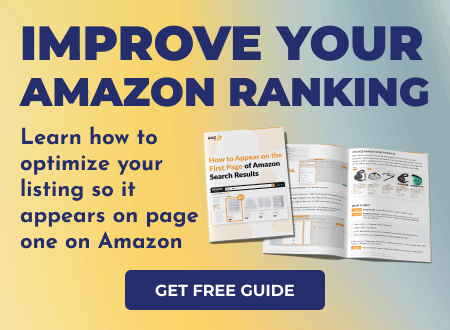
5. Research Report from Experts
If you want to save time or lack experience in product research, you can utilize specialized services that handle the search for you. Sellerhook, a product research service, is dedicated to identifying highly profitable and low-competition product ideas with consistent demand, ensuring excellent ROI and profit margins.
Their team of skilled researchers, supported by AI algorithms, will curate personalized product suggestions that align with your specific criteria, exclusively tailored to your business requirements. By leveraging these comprehensive product research services, you can uncover ready-to-launch opportunities and make informed decisions to thrive in your private label business.

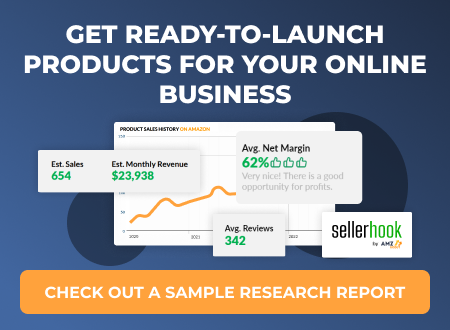
Standing Out in the Market: What to Do Next with Your Ideas
Once you settle on a product idea, you need to figure out how to make it stand out from the competition. In order to build a strong brand, differentiation is key. Here are three effective ways to refine your product:
Analyze Customer Reviews for Insights
By studying feedback about both your competitors’ products and similar items, you can identify common complaints and areas for improvement. Enhancements in design, functionality, or quality based on recurring feedback can give you an edge.
Instead of scrolling manually through hundreds of reviews, consider using the AI Review Analyzer. Simply input any product’s ASIN, and the tool will break down customer preferences, while highlighting key strengths and weaknesses.
Tip: Use this data to optimize your product listing and attract buyers by emphasizing strengths and addressing common concerns directly.
Gather Direct Customer Feedback
Engage with potential customers on platforms like Quora, Reddit, and niche Facebook groups. Create polls, ask for opinions in relevant discussions, or even start a survey. While this method provides qualitative insights, keep in mind that responses can be subjective. Look for patterns across multiple discussions to validate your findings.
Use AI-Powered Product Improvement Tips
With AMZScout’s PRO AI Extension, you can get instant suggestions on how to enhance a product to make it more competitive. This AI tool analyzes the market and provides actionable ideas on how improvements can affect sales performance.
However, while AI-generated ideas are helpful, they are general recommendations. For tailored insights, it’s always best to cross-check this data with customer reviews.
By using these strategies, you can refine your product, enhance its appeal, and outperform competitors in your niche.
10 of the Best Private Label Products You Can Sell
Now that we’ve discussed how to find ideas when starting your own brand, let's dig into some products worth talking about. There are numerous options for taking advantage of market trends and developing your customer base.
Below are some of the top ten areas you can get into with relative ease:
1. Beauty
When it comes to beauty products, Mary Kay provides us with a good base for potential. While you might not want to implement the same business structure they do, the point is that their business model operates on how inexpensive their beauty products are.
Beauty products are a heavily saturated market, but there are many narrow areas. When it comes to skin tone alone, you've got a million different options for assisting the underserved masses. Skincare is pretty critical as well!
The next time you explore a marketplace, dig through each of their product categories for makeup. If you find an area that you think is underserved (but still gets enough product reviews and sales), you can use this as a foothold to expand.
2. Pet
There is a wide range of pet products available for dogs, cats, gerbils, hamsters, and birds. However, there are still microniches and underserved pet populations that don't get as much attention.
Pet toys also fall into the category of baby toys and are small and cheap to manufacture. If the toy breaks, it's easy to blame the animal in question.
Remember that the creation of a unique pet toy can be a foothold. For example, if you want to get into the competitive pet nutrition market, your foothold in that marketplace can start in less competitive areas.
3. Baby
Baby toys are another popular area to get into. Among popular products, baby toys have low product costs, are divided into numerous niches, and can give you a good idea of eCommerce basics.
It's a matter of finding out which product category has the lowest level of competition. Given the many sub-categories available, this can take quite a bit to find.
However, once you find the right niche product to create, you'll find that this can prove to be a relatively easy source of income.
To access current Amazon sales data and other relevant metrics on your own, consider trying out the trial version of AMZScout PRO AI Extension.
4. Kitchen
Kitchen products are a great area to keep an eye on because prospective buyers are always looking for the newest thing. The number of niche fads in this area can be overwhelming, so it is undoubtedly helpful to keep up with the latest trends.
With kitchen products, it is good to be a bit pickier when it comes to product quality. After all, most other niches aren't exposed to as much heat.
5. Fitness and Health Products
The Amazon Trend Report tells us about the return of social fitness. Fitness equipment sales were up 55% between March and June of 2020. With the global pandemic slowing down in some areas, people are eager to return to exercise routines.
For many people, this means returning to the gym. Items like waist trainers and water bottles are both popular product sub-categories to target.
By paying attention to the latest trends in exercise, you might find yourself surprised at how you can meet high-demand products rapidly. Weight loss is a powerful motivator.
6. Men's Grooming
A 2019 report from CNBC tells us that the men's personal care market is expected to hit $166 billion next year. With men being more interested in looking good, grooming products are a unique niche. For men, it can be like bringing the spa to their home.
Relatively newer companies like Dollar Shave Club and Harry's Razors show us how it is done. However, this isn't just about shaving hair, as men's skincare products are also seeing significant growth. You might even find a market for men's bath balms.
The age of inclusivity is another reminder of how men are exploring sides of themselves previously discouraged. Otherwise, it's another way to avoid going to barbers or salons.
7. Organic Products
Sales of organic products have quickly risen by $30 billion into a $56 billion industry in 2020. Despite how challenging it can be to sell food products, the popularity of organic natural products provides a lot of potential.
Pay attention to the latest organic products at your local grocery chain. By doing so, you can expand to see how it survives in the eCommerce market.
Dry goods typically do better in this case, as these are the least expensive to ship.
8. Phone Accessories
Companies like Alibaba have a plethora of different designs for phone cases. The iPhone, one of America's most popular mobile devices, is always looking for new designs.
You'll want to be incredibly picky with your target market, as this area can be pretty competitive if you hit the wrong spot. You might find yourself exploring lesser-known accessory targets outside of phone cases when starting.
9. Reusable Shopping Bags
Going back to our organic example, one way of reducing pollution and being Earth-minded is through less plastic waste. By selling reusable shopping bags, you can do your part to appeal to those who prefer organic products.
You might find that reusable shopping bags are missing a feature you can meet. This is where detailed research is essential. This is a big deal in environmentally-conscious countries (I.e., the USA, UK, etc.). You could become a seller of the next generation of shopping bags.

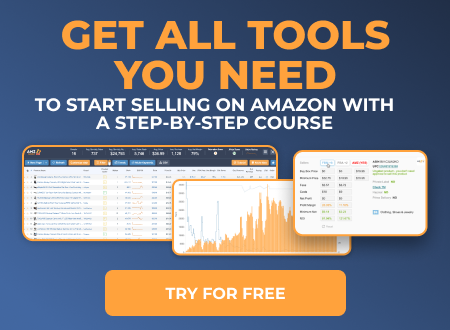
10. Clothing
Clothing might seem like an incredibly oversaturated area, but you'll find that narrow niches in clothing are often underserved. Many of these are from forgotten trends, but small numbers of clothing shoppers still cling to them.
An upfront investment to a private label company to become the product provider is one way to gain significant attention.
Pros and Cons of Creating Private Label Products
PL products come with their own set of strengths and weaknesses:
Advantages
There are many reasons to create Private Label Brands:
Production control - Being the exclusive provider of a product line gives you greater control over production. To get control over white label products, you have to be a larger company.
More pricing control - Having more production control helps you understand potential profit margins and operating costs. Having this knowledge and production control enables you to determine the best price.
Greater market control - When dropshipping or going wholesale, you aren't selling your product - you are selling someone else's. Having ownership over a product under your brand means that you can maintain brand loyalty.
You can be fast - By outsourcing manufacturing efforts, you can focus on market research. By specializing your business in marketing and sales, you can be more efficient than other larger companies.
It is your brand - Your brand, your rules. When you have complete control of marketing, design, and optimization, you are accountable to anyone. If you have the skills, you can truly grow a market segment for yourself.
Disadvantages
Private Label Products are not always the best choice for all sellers. Here are some reasons not to go with PL use:
Reliance on a third party - Finding a poor private label manufacturer won't help you at all. When you experience shipping delays or suddenly see a price hike, it's hard to negotiate when you need the product.
It takes time - When wholesaling, you typically are selling a well-known product with pre-existing brand loyalty. Private brands don't have that loyalty, so you will need to work harder and wait longer to get that.
Less innovation - While you can eventually build to create product ideas, third-party manufacturers typically won't support you in innovation. Private label brands commonly piggyback on the latest trends, so it's hard to hold the number one slot (sometimes).
Customers have lower expectations - People assume that product label products are automatically cheaper because you don't have an internal manufacturer. You will have to overcome that stigma by selecting a good manufacturer.
Where Can I Create My Private Label Brand Line?
When choosing the best private label manufacturer, it is essential to know you can trust them. One way you can confirm trust is by going through big-name providers. Below is a list of providers you can choose from.
1. Alibaba
Alibaba (Sometimes called Alibaba Group) is an international company best known for its private-label potential. The ability to easily purchase pre-made items in bulk enables you to choose from various products that are already there.
Alibaba has a vast market of various sellers wanting your attention. Because the company operates out of China, it's incredibly inexpensive.
Alibaba is one of the most common ways Amazon sellers get started. Alibaba resellers are less common elsewhere, but the potential is still great.
2. ThomasNet
ThomasNet is another major provider known for supporting major American companies like Boeing, 3M, Kraft, and NASA. This company provides assistance in searching through a vast selection of over six million merchandise items with relative ease.
Much like Alibaba, ThomasNet is a company that specializes in providing a base for other manufacturers. Unlike Alibaba, these manufacturers are exclusively in North America.
ThomasNet is also great at providing professional service companies with protective wear.
3. SupplyMeDirect
SupplyMeDirect is another well-known manufacturer of various resold products. This marketplace is similar to Alibaba's in the way that they structure the site.
SupplyMeDirect also provides further support for supply chains. However, you will want to ensure quality control for your first few shipments, so be sure it reaches you before it goes anywhere else.
You might prefer them as a private label distributor, as that gives you more control over product quality.
4. Modalyst
Modalyst is another major company that works in the private label industry. This company integrates with some of the major online marketplace providers (Shopify, BigCommerce, Alibaba, etc.)
Wix has recently purchased this company in an attempt to make its eCommerce offering more competitive. While you will see dropshipping as its primary offering, it does offer a strong private label business.
Integration with multiple applications enables eCommerce specialists to try on various marketplaces through Modalyst.
5. Hawthorn
Quality clothing manufacturers like Hawthorn are hard to come by. This company is one of the UK's number-one providers of garments.
This company can be great for providing help with pattern development, prototypes, and sampling. You might find that they cost more than Alibaba or SupplyMeDirect. However, this is a quality private label provider.
If your target market involves selling clothing as a fashion expert, Hawthorn can help you find that space with quality. Don't expect the cheapest products from them.
Tips for Starting a Small Business That Sells Private Label
Before we end this blog post, here are some quick tips you need to consider before becoming a private label seller.
1. Always Check Out Your Supplier
While there are many suitable private label suppliers, there are also some bad ones. All of the suppliers on this list will typically enable you to dispute issues, and going with other providers can be dangerous.
Given that many of these private label manufacturers are in China, you'll find yourself struggling to seek any compensation from a poor supplier.
If you are working with a Chinese manufacturer, check these resources out first:
China Trial Process Information
Disclosure Website
China Judgements Online
All three of these will inform you about court-related information of potential manufacturers. After looking up your chosen company, ask them to send a sample.
If the company is unwilling to send a sample, move on. It isn't worth the potential of bulk ordering a terrible product.
2. Work with Local Suppliers
If your niche fits local needs, you can ask for local suppliers. The best way to avoid international issues is by avoiding those issues altogether.
Local suppliers might have higher upfront costs, but you don't have to pay for shipping. Also, you can resolve issues more quickly.
3. Optimize Your Product Pages
From our previous step on keyword research, you can also use those keywords to optimize your product listings. Optimization involves placing those keywords in the product title and description.
Doing so will enable people who search for your product to find you. You can also optimize for secondary keywords by placing them throughout the description.
In addition to keywords, be sure that your descriptions are also detailed, your images are high-quality, and your copy is engaging. Nobody wants to buy a product that looks like it comes from someone unprofessional.
4. Promote Your Products
Last but not least, you need to remember to set an advertising budget. Even if your product listings hit all the right points, nobody will find you if you don't pay for advertising.
This situation is especially true if you have a young marketplace listing. Almost all online marketplaces won't give you a top-ranking position in your first month unless the competition is low. In that case, you probably won't generate enough sales anyway.
Always be sure to come in with a competitive budget. Advertising is a necessary part of your product costs.
Why Should I Become a Private Label Seller?
The battle between old-school brands versus private label brands is apparent. Huge companies are being dethroned left and right on online marketplaces because being small and quick has meaning.
Specializing in an area makes you more efficient. Not every company is going to be the best at everything. Trying to be the best at everything is not realistic or attainable.
Instead, small companies are best at getting small things. Private label selling involves people who specialize in marketing, sales, or meeting customer needs.
It is that recognition that enables small companies to be stronger performers than large companies in many ways.

